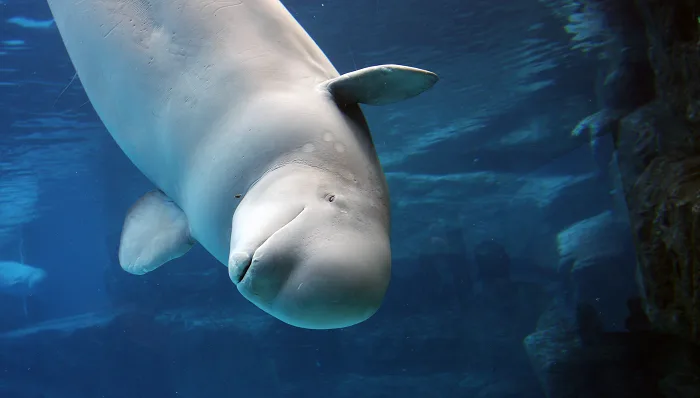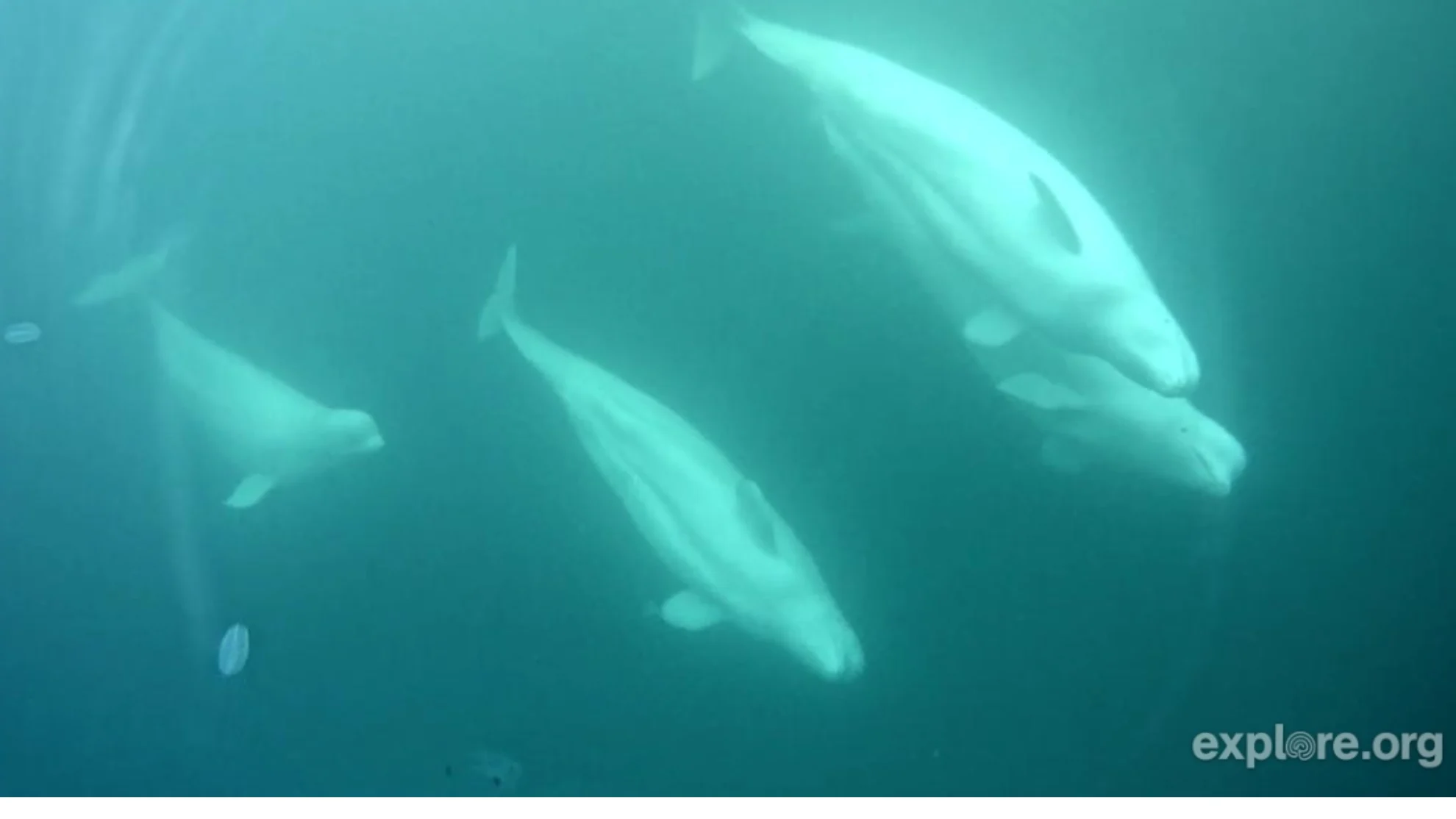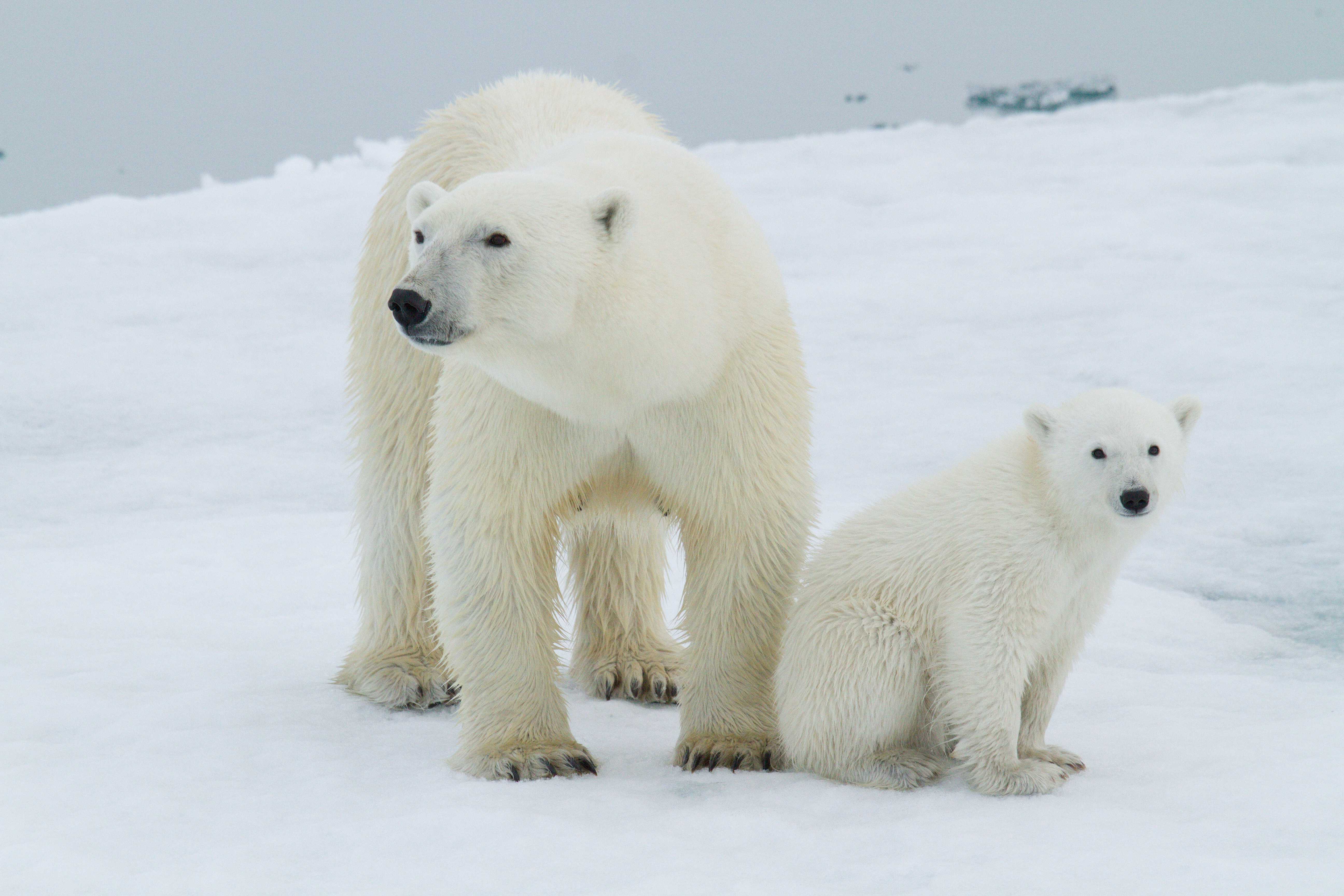
Watch thousands of beluga whales embark on their annual migration live
Thousands of whales will be swimming through Canadian waters over the next few weeks.
The annual migration of more than 57,000 beluga whales is about to start - and you can watch it on the Beluga Whale Live Cam. The camera will go live on July 15, 2025, to coincide with Arctic Sea Ice day.
The whales swim down from the Arctic through the Hudson Bay to feed, molt, and give birth. Experts like to keep an eye on the migration because their numbers and patterns give clues about the health of the Arctic ecosystem.
The main cameras have been set up at the intersection of the Churchill River and the Hudson Bay, an area that about two-thirds of the total global beluga population travels through during the summer. You'll experience more than visuals: The cameras also have sound, allowing you to hear the beluga's vocalizations.

Smile: You're on camera! Screengrab of belugas on a live cam (explore.org)
Low sea ice
Arctic winter sea ice fell to a record low this year, which has a negative impact on beluga communication, according to a press release from Polar Bears International, the organization hosting the beluga camera on a new boat, debuting this year.
Low sea ice can also leave belugas more vulnerable to predators, disrupt migration, and make it more difficult to find food.
Organizers hope the initiative will spread awareness about the importance of sea ice -- not just for belugas, but for polar bears as well.
Belugas have a typical lifespan of about 70 years. A study from July 2020 suggests they may share some social traits with humans.

Sea ice is important for polar bears, too (KT Miller/Polar Bears Interntaional)
The paper found that beluga whales are social creatures that like to make friends.
While other animals, like killer whales and African elephants, form social bonds around closely-related family members, belugas were found to interact with close kin as well as distantly related, and unrelated, whales, sometimes forming bonds that spanned several decades.
Thumbnail image courtesy: Getty.
